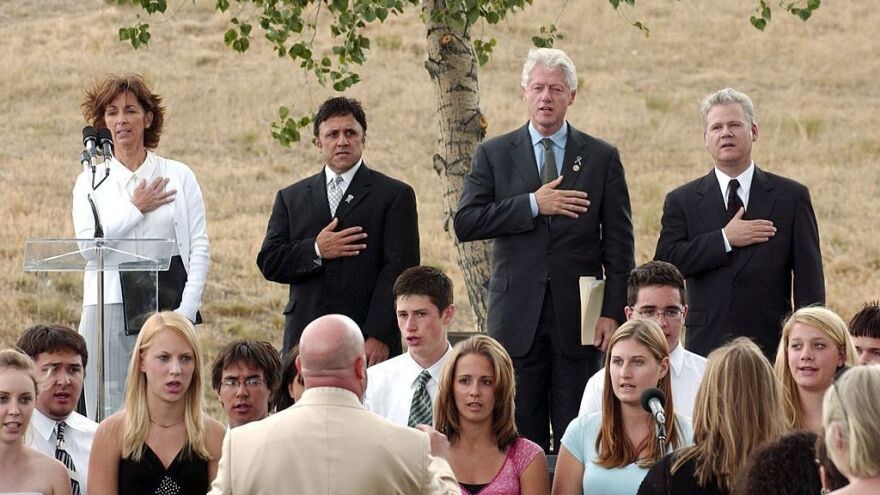Updated June 22, 2022 at 12:45 PM ET
Over the past couple of decades, April has been a rough month for Frank DeAngelis' cars. He's been in six accidents.
"It's not that I was texting or not paying attention, but my concentration level was not there," he tells NPR's Morning Edition.
That's because in April 1999, DeAngelis was the principal at Columbine High School when two of his students killed 12 others and a teacher in a mass shooting.
Over the years since, he and other school leaders who've survived these types of attacks have formed a growing support group, offering advice and a sounding board after each subsequent tragedy — most recently leaving a message for the principal of Robb Elementary in Uvalde, Texas, where 19 fourth-graders and two teachers were killed in May.
In the aftermath of these attacks, he says, survivors have sometimes bristled at the sympathy offered to them.
"You know what I'm feeling? Did you encounter a gunman? Were you locked in a room for three hours with the fire alarm going off?" he says.
The purpose of his group, named the Principal Recovery Network, is to provide the perspectives of those who really have been there.
In August they'll publish a guide on how to recover from mass shootings, covering a range of topics: How to handle the media, re-entering the building, how to deal with graduation, why events marking a year since an attack should avoid words like "anniversary."

Shepherding a traumatized student body and staff while processing your own trauma is complicated, he says, and some problems can be difficult to anticipate.
"We couldn't even go back in our own school because of all the damage that was done, so we went to a sister school, Chatfield High School," he says. "But I remember the first day back over at Chatfield, the parents decided to welcome the kids back by putting an archway of blue and silver balloons, our school colors.
"A great idea, until the balloons started popping and kids started diving."
He had an easy time identifying with that impulse: "When I had to return to Columbine and the building was being reconstructed ... needless to say there was a lot of loud noise, and every time I heard that loud noise it took me back to the gunman firing shots at me, and I would run out of the school."
He says it took a counselor asking him to share his good memories about each of the victims to begin his process of healing, and to help him stay on as the school's principal for another 15 years. Each year on the anniversary, he still calls each family to laugh and remember.
It's all part of a recovery process that's long — he told NPR in an interview marking his retirement in 2014 that survivors of the attack were still reaching out to access mental health help even a decade later — and never really complete.
"It's something that you live with for the rest of your life," he says.
Copyright 2023 NPR. To see more, visit https://www.npr.org.



